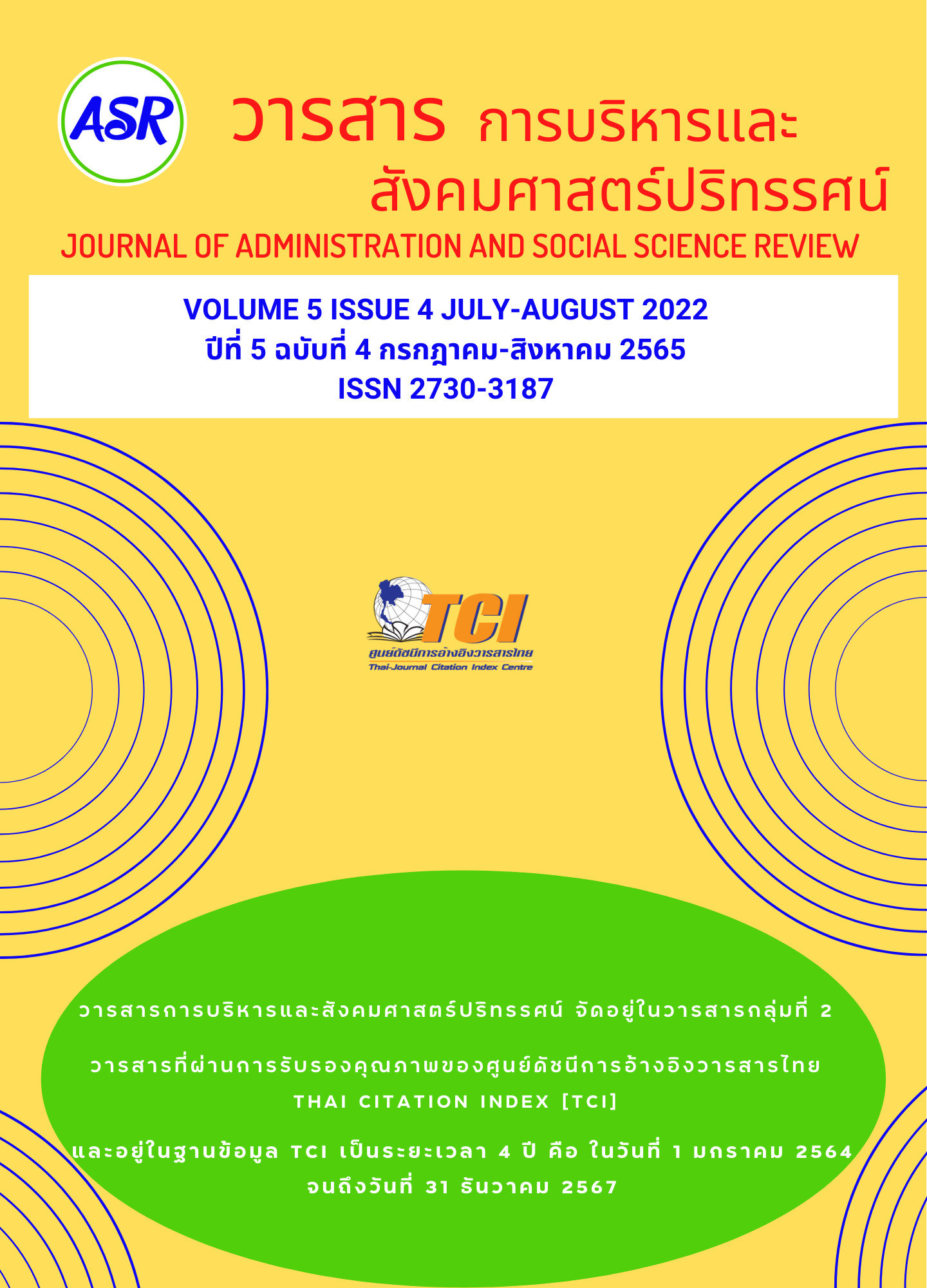Conservation and Development of Cotton Weaving Wisdom of Nga Khi Mon Pattern, Maetha District, Lampang Province
Keywords:
Conservation, Development, WisdomAbstract
The objectives of this research were: 1) to study the context and cotton weaving wisdom of Nga Khi Mon pattern; 2) to study guidelines for the conservation and development of cotton weaving wisdom of Nga Khi Mon pattern; and 3) to study the problems and obstacles towards the conservation and development of cotton weaving wisdom of Nga Khi Mon pattern. The main informant group was the chairman of the village philosophy group, government officials and a group member of 20 respondents chosen by purposive sampling. The tool used was an in-depth interview, observation record, and small group conversation record. Data were processed by the content analysis methods and presented through descriptive statistics.
The results of the research revealed that Nga Khi Mon cotton weaving pattern was unique with a long history. Knowledge was passed on from experience by means of telling and letting learners do it themselves. A cotton weaving professional group was established, and networking was promoted.
As guidelines for conservation and development of wisdom, there should be budget support from the government, and weaving courses at educational institutions for precious wisdom preservations of the weaving process made by the ancestors. Or there should have a group of investors to take the product to stich and design, because the group does not have expertise in sewing and designing to keep this wisdom alive.
For problems and obstacles to conservation and development, it was found that relevant agencies should provide appropriate support in terms of knowledge, understanding, skills, materials, equipment, and budget. Lack of inheritance from the new generation in the community and lack of continuous publicity were found to be a significant problem.



